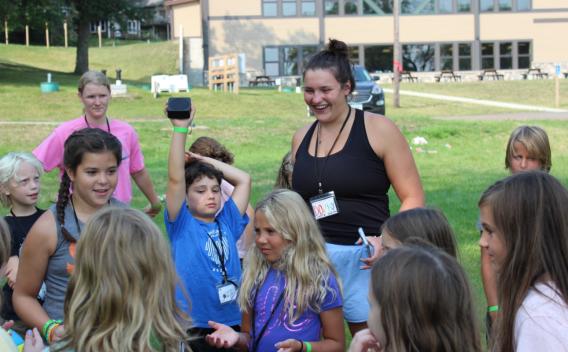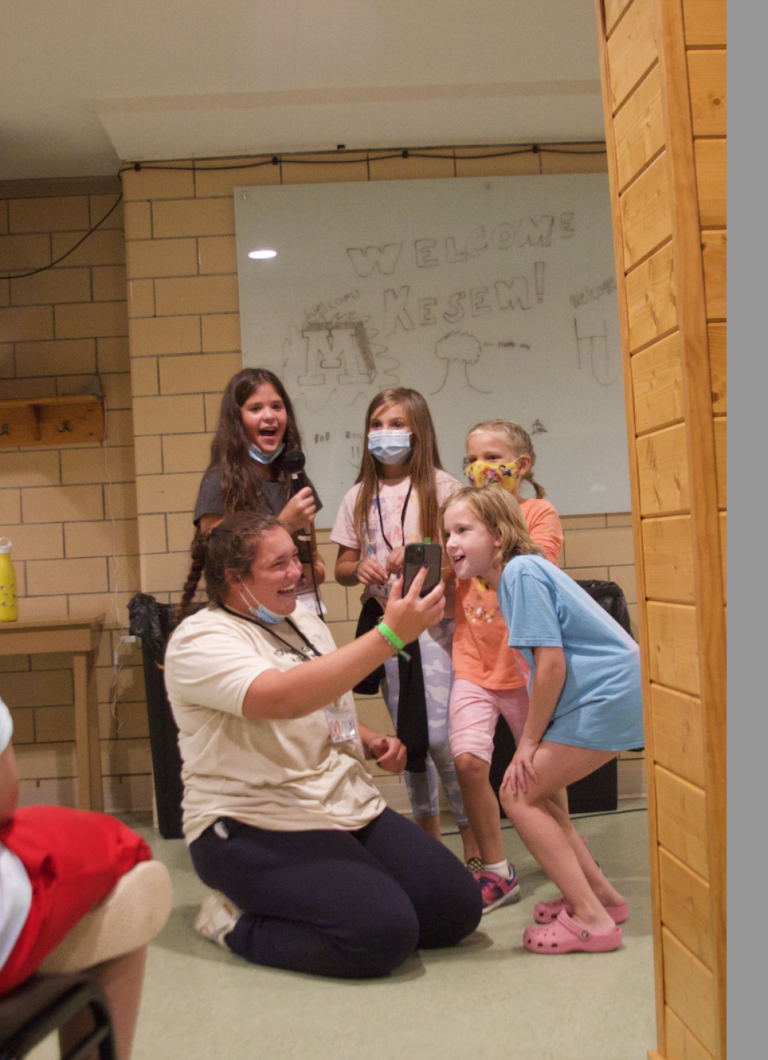News
ICD Developmental Psychology major Ellie Schwartzman finds community in volunteering
Ellie Schwartzman is a Developmental Psychology student who also serves as an ICD student worker. She is expecting to graduate in spring 2025 with a Dev Psych major and minors in Family Violence Prevention, Family Therapy and Sociology. We sat down with Ellie to learn a little more about what drives her and how volunteering has played a big role in her undergrad experience.
Tell us how you first learned about dev psych and why you decided to major in it.
Coming into college, two things were clear: I wanted to help people and I wanted to work with kids. I wasn’t exactly sure how to get there, but my AP psychology class led me to look into the world of psychology. After endless Google searches and research, I stumbled across what was then called, “child psychology.” Shortly after, I applied to a few different developmental psychology programs. Unbeknownst to me when I committed to the University of Minnesota, was the prestige the Institute of Child Development carried. I decided to come to the U and major in developmental psychology because I knew my passion revolved around children. Seeing how kids grow and how everything and everyone around them can be influential is what continues to fuel my passion for developmental psychology.
What has been your favorite class so far and why?
My favorite class so far has been Children, Youth, and Media with Dr. Warren. With the pervasiveness of electronics and social media, understanding what this means for a child’s development was extremely pertinent. We briefly touch on the impact of media in a handful of developmental psychology courses, but I could not think of a more fitting course for today’s generation than one related to media influence.

Ellie Schwartzman at Camp Kesem


Ellie Schwartzman with children from the Kesem program

What research lab are you working in?
I am working in Dr. Sylia Wilson’s Family Cognitive Affective Neurodevelopment Lab, better known as Fam CAN. For the past three semesters, I have been assisting [ICD PhD student] Emily Padrutt on a follow-up research study to Better Understand Mood during the Perinatal Period (BUMPP). Through this, we are collecting data to analyze how maternal pre- and postnatal depression may impact infant self-regulation at 6 months of age. As we wrap up data collection for the BUMPP Follow-up this summer, I will move forward with a UROP and honors thesis that will revolve around my work in this study.
Tell us about your volunteer work with Kesem, a nonprofit serving children whose parents have cancer.
My first experience with Kesem was when my brother was volunteering as a counselor at his university. While I never really asked him about it, the photos of him and his campers covered head-to-toe in paint are something I will always remember. It wasn’t until I got to the University of Minnesota ExploreU fair that I realized Kesem is a national organization. I remember the catch phrase that pulled me in, “love kids, hate cancer?” After that, I was hooked.
Kesem UMN has the opportunity to support over 100 children in Minnesota whose parent or guardian has been impacted by a cancer diagnosis. Kesem’s mission is to support children through and beyond a parent’s cancer with our flagship program being Camp Kesem. Camp Kesem at the University of Minnesota has quickly become my home away from home. From the student volunteers to the amazing campers, there is so much love, support, and magic in the community. Kesem is one of a kind and I am so beyond lucky to have found this group. In Hebrew, Kesem means “magic,” and there is no better way to explain being a part of this organization.
My favorite memory from my time at camp was seeing a young camper return to camp for his second year. After struggling with homesickness his first year and wanting to leave camp early, I thought there was no way we would be able to get him to come back. However, the next year rolls around and I see him in the check-in line at camp grinning ear to ear. I had a chance to talk to his mom and she told me, “he hasn’t stopped talking about camp all summer.” This is why I love Kesem, and this is the magic of Camp Kesem.
Why do you think volunteering is an important part of the undergrad experience?
Volunteering, in whatever way you want, is an integral part of the undergrad experience. Volunteering introduces you to the community in which you will be spending at least four years of your life - the people, the environment, and everything in between. It gives you an opportunity to find a new passion or figure out what inspires you. Not only does volunteering give you experience, but it gives you a community. A group of like-minded people who want to make a difference in their community while finding their own community along the way. As an out-of-state student, the people I have met through volunteering have become my second family here in Minnesota. Getting involved in undergrad, no matter how daunting it was, is one thing I will never regret.
Where do you see yourself in five years?
With grad school in my future, in five years I hope to be wrapping up my doctorate in Clinical Psychology. The goal is to eventually become a practicing child and adolescent psychologist.